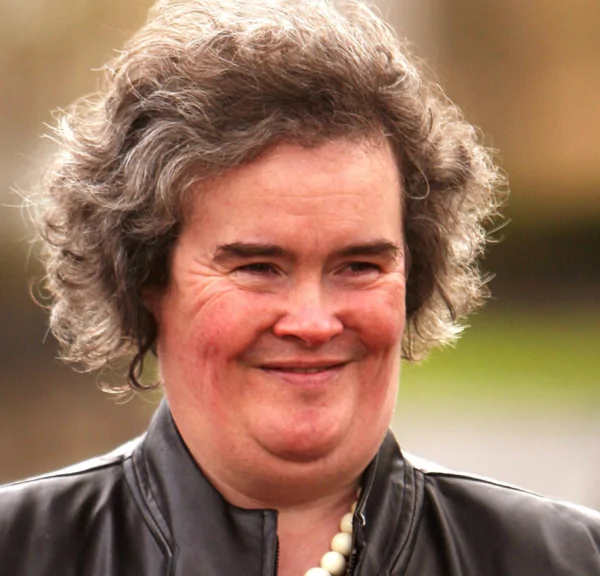One of the founding members of the legendary pop group ABBA, Agnetha Fältskog is a Swedish music legend.
Fältskog, a Swedish citizen born on April 5, 1950, joined the pop group ABBA in the late 1960s, which led to the beginning of her rise to fame on a global scale. Due to their catchy melodies, symphonious vocals, and iconic songs like “Dancing Queen,” “Waterloo,” and “Mamma Mia,” ABBA quickly gained international fame and success. “.
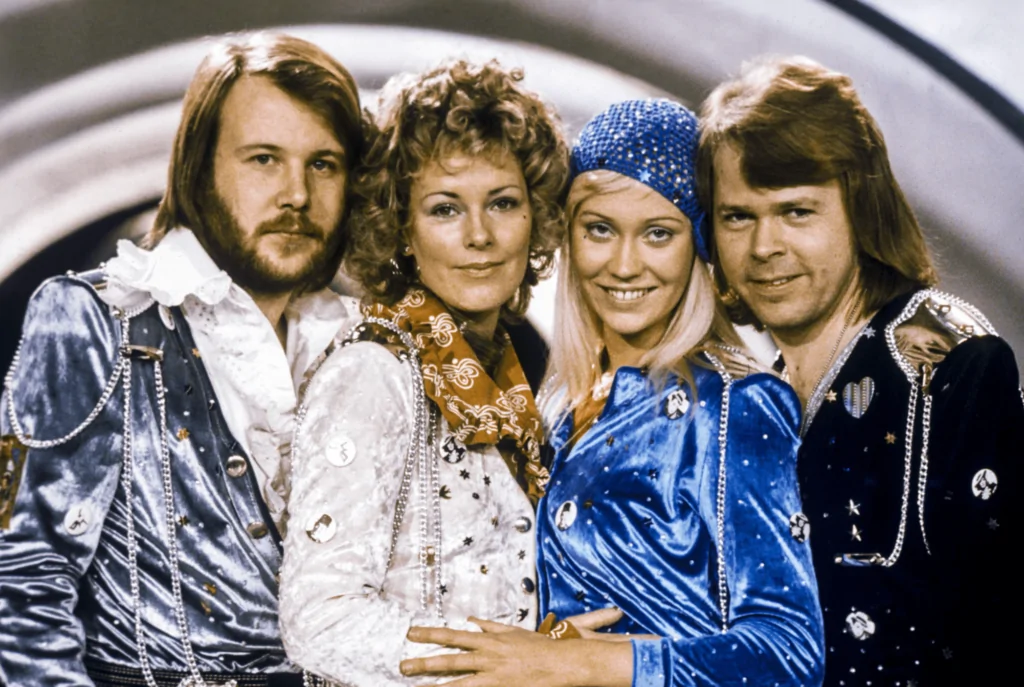
In addition to her lovely voice, Agnetha Fältskog contributed to ABBA with her captivating beauty and charismatic stage presence. Along with her work with ABBA, her solo career, which began in the early 1970s, further demonstrated her skill as a singer-songwriter. Her ability to express strong emotions through her music was highlighted by hits like “The Winner Takes It All” and “I Know There’s Something Going On.”.
Fältskog has endured personal hardships such as the intense public scrutiny that came with ABBA’s fame and a brief break from music in the late 1980s, but he has managed to remain a dependable and adored figure in the music business.
Agnetha Fältskog is well-known for being a recluse and being devoted to her family in addition to her musical career. After ABBA split up in 1983, she withdrew from the public eye for a considerable amount of time in order to concentrate on her personal life and raising her children.
She did, however, have a successful comeback in the early 2000s with a solo album called “My Colouring Book,” and she has since continued to release new music, much to the delight of her devoted fans.
Both as a member of ABBA and as a solo performer, Fältskog had an unmistakable impact on the pop music scene, and her timeless songs continue to enthrall listeners all over the world.
Today, ABBA is regarded as one of the greatest bands in history. Still regarded as a worldwide phenomenon, the Swedish group. One of the group’s members, Agnetha Faltskog, has chosen to live a quiet life.
Along with Anni-Frid Lyngstad, Faltskog was one of the lead vocalists in ABBA. She had an all-time great pop voice and made people dance while also breaking their hearts with some songs. However, more than anything, she and her bandmates turned into some of the most fascinating musical figures in history.
Faltskog now has a secure life in Sweden, but that doesn’t mean she has given up making music. She looks incredible now at 72 years old!

Few people can say they haven’t heard of ABBA. The music of the band probably makes 10-year-olds today dance as wildly as anyone has ever done. No matter if you saw the first performance of Waterloo or if you won’t become a parent for another 30 years, you can still participate.
Picking a single favorite ABBA song is incredibly difficult. ABBA’s success around the world is unquestionably due to the fact that there is an ABBA song for every emotion we experience, including joy, sadness, inspiration, and regret.
Most definitely was Agnetha Faltskog. They are quite exceptional because, after the band’s dissolution, all of the members essentially disappeared. Yes, they continued to create music, but they preferred to live quietly away from the spotlight.
This is Agnetha Faltskog’s inspiring story, which includes what happened to her after ABBA disbanded and how she first joined the group.
Agnetha was born in Jönköping, Sweden, on April 5, 1950. Birgit Margareta Johansson and Knut Ingvar Fältskog, a store employee, had two daughters; she was the first of them.
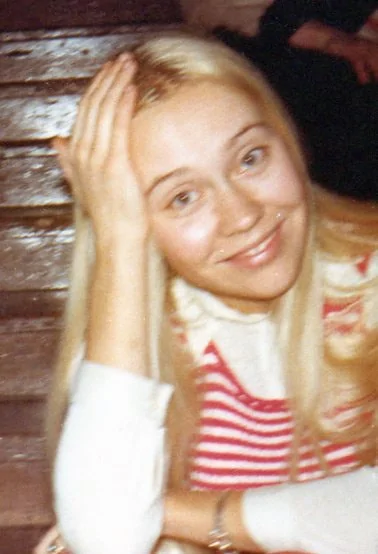
Agnetha Faltskog has always had a love of music. She was talented, and she enjoyed Tom Jones, Petula Clark, and Dusty Springfield among other artists.
Faltskog wrote a song when she was only five years old about two little “trolls.”. When she was eight years old, she started taking formal piano lessons. She frequently practiced at her neighbor’s house. She also participated in the local church choir.
When Faltskog was just 13 years old, she and her two childhood friends formed the band The Cambers. Only a few small neighborhood performances were given before, two years later, she decided it was time for something else.
Bernt Enghardt, a Swedish folk group, welcomed Agneta as a member. The band traveled throughout Sweden playing music for dancing.
Agneta the vocalist resigned “before me,” Agnetha remembers. “When they first found me and after they posted job ads looking for a new vocalist, it was a big plus that I was also known as Agnetha, and I had an audition. “.
Faltskog continued to work as a telephonist for a car company while on tour with Bernt Enghardt, but things could have been different for her.
She got home “around two or three” in the morning and was supposed to be at work shortly after. Her mother even gave her a choice after she once passed out at the auto manufacturer.
Agnetha remembers her mother saying, “You can either devote yourself entirely to singing or work as a normal person. It wasn’t challenging because I wanted to keep singing. “.
Agnetha sang with the Bernt Enghardt band for another two years before departing to begin a solo career. She added an “h” to her last name after the release of her first solo album.
When Faltskog was only 17 years old, his debut single, Jag var s kär [I Was So In Love], was released to the public. When it climbed to No. Bjorn Ulvaeus heard it on the radio when it reached No. 1 on the Swedish sales chart in 1968.
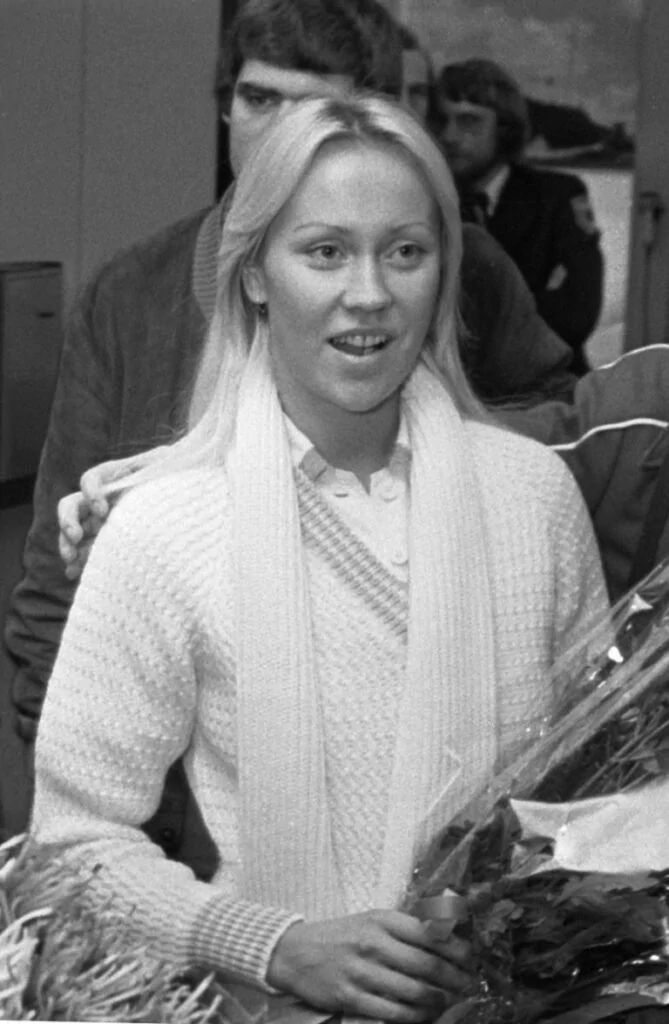
“I remember hearing Agnetha’s first single on the radio. Benny said in the BBC documentary Agnetha: Abba and After, “There was something so extraordinary about her voice and that she had written the song herself – it was beautiful.
Benny Andersson continued, “She did some sort of back-to-back, good songs. She gave an admirable performance, singing along with herself.
Now, Bjorn and Benny were talented musicians who had worked together in the past. Agnetha’s career took off after the release of her first hit, and she soon had a gig lined up with Bjorn Ulvaeus.
On a TV show we both worked on, she and I performed a duet. We actually had our love affair that night, and then we got married not long after. That was a wonderful moment, he recalled.
Benny fell in love with Anni-Frid Lyngstad while Agnetha and Bjorn were performing together.
They weren’t yet planning to start a band, despite being four extremely talented musicians in the same place. Anni-Frid and Agnetha sang background vocals on the 1970 Bjorn and Benny album Lycka [Happiness].
Soon the four were working together. In 1972, they released the song “People Need Love,” but it wasn’t all that popular there. The group was now known as Björn and Benny, Agnetha & Anni-Frid. They made the decision to take part in Melodifestivalen, Sweden’s submission for the Eurovision Song Contest, and they performed the song Ring, Ring. Despite finishing third, the song became a huge hit in Sweden.
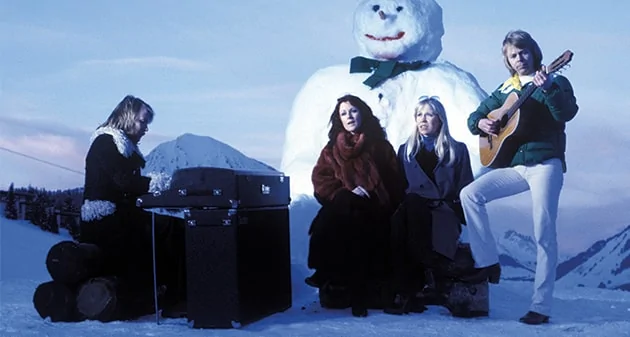
In a number of European countries, Ring, Ring became increasingly well-liked and stuck around. The group was now becoming well known throughout the world. In 1974, one year later, they would succeed in their endeavors.
They took part in Melodifestivalen once more, this time performing the song Waterloo. They decided that their band would have a new name before performing at the Eurovision Song Contest in Brighton, changing the course of musical history. The Swedish qualification had been won by them.
There is an ABBA.
Agnetha had other ideas as ABBA went on to win the Eurovision Song Contest, which many people consider to be the most notable event in ABBA history.
She wed Bjorn Ulvaeus in 1971, and the two had their first child, Linda, in 1973. Agnetha was pregnant at the same time that the ABBA craze, which was gaining momentum every day.
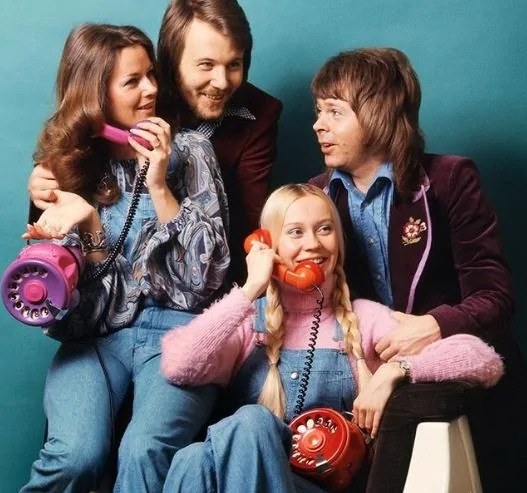
It was undoubtedly challenging to have children while growing up to be one of, if not the largest, tribes on the planet.
Agnetha acknowledged that she was relieved that Ring Ring did not assist them in winning the Melodifestivalen given that she was only a few months away from giving birth to Linda.
Faltskog claimed, “I managed to combine marriage, having children, divorce, and a worldwide success during the 10 to 12 years we performed as ABBA. As I said earlier, it wasn’t easy. The fact that Dad [Bjorn] was also gone made leaving home challenging. While we were away, we made sure that our children were taken care of.
We didn’t stay away as long as you might have thought. We made the decision that if we were away for 14 days, we would also be at home for that period of time.
Although ABBA as a whole enjoyed phenomenal success on a global level, Agnetha struggled with having to leave her children.
Because it was challenging for her, she even told herself she might quit the group.
It was difficult, and I was unsure of my best course of action. How can we fix this?” I replied that we needed to spend the same amount of time at home as we did on tour. Agnetha continued.
I never intended to leave the group, but I could justifiably do so to get by and let everyone know how difficult things were.
A huge victory was achieved at the Battle of Waterloo. But it was only the beginning of a completely new era in the history of music. It took some time before ABBA had its following big hit because winning the Eurovision Competition did not guarantee success after the competition.
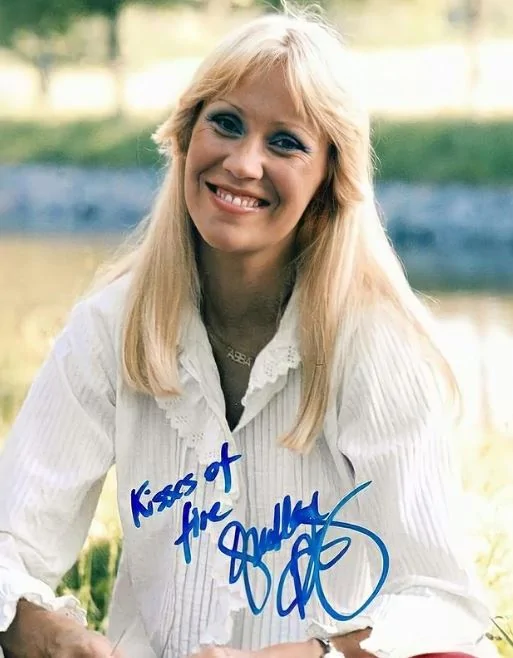
Then, 18 months later, they released the immensely popular song SOS. On the same album as ABBA from 1975, the song Mamma Mia rose to the top of the charts all over the world.
It had been the No. In Australia, ABBA held the No. 1 spot for ten weeks, and the fandom “down under” was bananas. One of the ABBA fan countries, Australia, provided six of the group’s Number One songs.
Over time, ABBA put out more albums while continuing to have success. Dancing Queen, the only No. 1, and songs like Fernando quickly gained popularity. The group’s single in the US was one.
At this point, ABBA had made a name for themselves as one of the most well-known bands in the world, and for good reason. One of the group’s many hits is Money, Money, Money. Other hits include Knowing Me, Knowing You, Chiquitita, The Winner Takes It All, Super Trouper, Take A Chance On Me, and Lay All Your Love On Me.
As Agnetha and Bjorn were getting divorced in 1979, ABBA’s sixth album was released. But the band continued to perform their duties professionally; it wasn’t ugly.
The song The Winner Takes It All, performed by Agnetha, was about their divorce.
It’s incredibly moving that he wrote it right around the time of our divorce. I didn’t care, Agnetha said. Because I could express such emotion, it was lovely to perform that song.
She continued, “I didn’t mind telling the world about it. That song is filled with so much. It didn’t seem strange.
Agnetha spoke about her divorce from Bjorn in an interview she gave to the Daily Mail in 2013. If only for the benefit of their two children, she claimed that they get along well.
Bjorn and I have managed to get through the pain, she declared. “It’s welcoming. I haven’t locked any doors. I never give up hope despite the many ups and downs of love.
Two years after getting married in 1978, Anni-Frid and Benny also got divorced. In 1982, the band thought they were likely nearing completion.
They released The Singles – The First Ten Years, a brand-new album that contains all of their greatest hits along with two brand-new songs. But as New Year’s Eve that year drew near, ABBA made the decision to go on vacation.
After a few years, the group claimed that they could come back together permanently if they so chose. but it never happened.
Agnetha made the decision to go it alone. She released several songs, but the standout from her three 1980s albums was Wrap Your Arms Around Me.
She decided to vanish from view after achieving some modest success. Agnetha preferred a quiet lifestyle and was a very private person. She still resides on a small island near Stockholm, Sweden. She still looks gorgeous!
Faltskog made the decision to leave behind ABBA and her well-known career. But a lot of people thought her behavior was incredibly enigmatic.
In choosing to isolate herself, she came across as very strange. But Agnetha Faltskog didn’t like that impression.
“I have been called very mysterious, but I’m not,” she said in an interview with The Guardian. I have a different life. Among many other things, I have my children, grandchildren, two dogs, a big house in the country. I believe I’ve been grounded.
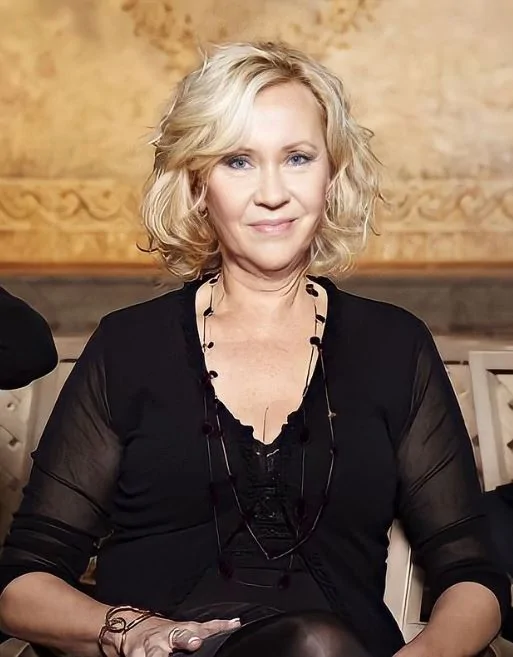
As of late, Agnetha has three grandchildren. They are still largely ignorant of their grandmothers’ former status as global icons, though.
According to Faltskog, “I spend a lot of time with the grandchildren. They love it when we sing together. It’s wonderful to hear them because they can sing so well. I don’t talk to them about Abba or the past as much, but as they get older, they’ll start to comprehend more. The oldest, Tilda, already has some more information.
According to The Guardian, Agnetha Faltskog is estimated to be worth $20 million. Given that ABBA is allegedly reuniting, that figure might soon increase.
2013 saw the debut of Faltskog’s most recent CD. But Bjorn Ulvaeus recently announced that more ABBA music will soon be accessible.
It’s no longer a case of it might happen, it will happen, according to Ulvaeus, who spoke to the Herald Sun, “There will be new music this year, that is definite. “.
Our friendship is incredibly close. The four of us are standing in the studio for the first time in 40 years, and knowing what we have been through adds a special touch. Though the connections between us are so strong, it can be difficult to put them into words.
I am utterly smitten by Agnetha Faltskog’s voice. She was a great superstar, and I hope to see her on stage again soon.
In the meantime, share this post in honor of ABBA by stating your favorite ABBA song in the comments.
